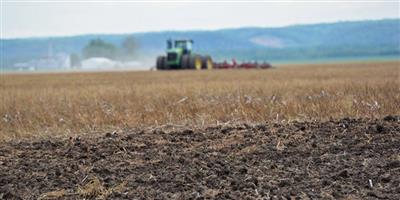by Richard Oswald, President of the Missouri Farmers Union
The Trans Pacific trade pact promises us cheaper food with sketchier ingredients. American farmers will face upheaval and more dislocation, while corporate agriculture thrives
If China assembles my Apple iPhone with its global mixture of ingredients, shouldn’t Asians at least eat Washington apples? Maybe not while China produces nine times as many apples as the U.S.
And if my chore tractor came from Italy, (Europe is where most small farm tractors are manufactured today) shouldn’t Italians buy my corn?. Probably not, while they’re the eighth largest corn grower in the world.
That brings U.S. farmers to another crossroads, having bought into the idea that to be successful and make a lot of money, we need full unfettered access to consumers around the world. But those consumers, almost without exception, would rather have food grown at home. Their farmers want it that way too.
Maybe that’s why we’ve been told the answer to consumer resistance is trade agreements like Trans Pacific Partnership (TPP) that lock trading partners into commitments to buy stuff no matter what. Those agreements always seem to come with a few years of doing business the old way, giving our best new buddies protection and a chance to adapt to doing business the new way. But, as is too often the case, by the time new markets are phased in, they’ve already disappeared via geopolitical corporate hustles and revalued currencies.
It’s pretty nigh onto impossible to pick up the family farm and move it one piece at a time, the way industry seems to do. We’ve already seen how easy it is to set up manufacturing plants in Asia or Mexico for everything from cars and washing machines to cotton T-shirts. And while benefits to farms are always touted, most of the trade agreements we farmers are exhorted to support are already designed to aid floating factories around the world owned by shadow companies looking for cheap labor and ingredients, a tax break, and easily adjustable money.
Farmers are no strangers to market access. Over the years we’ve seen markets come and go via embargoes, farm programs, or transformed into world trade deals more about whipping us than helping us. That’s the way it’s gone for poultry and hog farmers in America as corporations have cemented themselves into virtually every aspect of production from eggs and artificial insemination, chicks and pigs, all the way up to fresh wrapped meat in the grocer’s case.
Monopolies like those have come to be viewed by leaders (who most of us unenthusiastically refer to as politicians) as just another cost of doing business for highly efficient “agriculture.”
But here lately, one of the biggest costs to one efficient branch of U.S. “agriculture” has been a virus called PED, short for porcine epidemic diarrhea. First discovered in Europe, PED spread through Asia mysteriously finding its way to America and Canada. After years of searching for the source, USDA now attributes PED’s origins, responsible for killing 8 million baby pigs in the U.S., to contaminated shipping bags used to deliver bulk commodities to the U.S. from – take a wild guess – our trading partners in Asia.
That’s where avian flu originated, resulting in the destruction of close to 50 million U.S. chickens and turkeys this year costing close to $1 billion and driving up the price of eggs.
But, we’re told, it will be good for “agriculture.”
CLICK HERE to read the full article
Source: Daily Yonder






